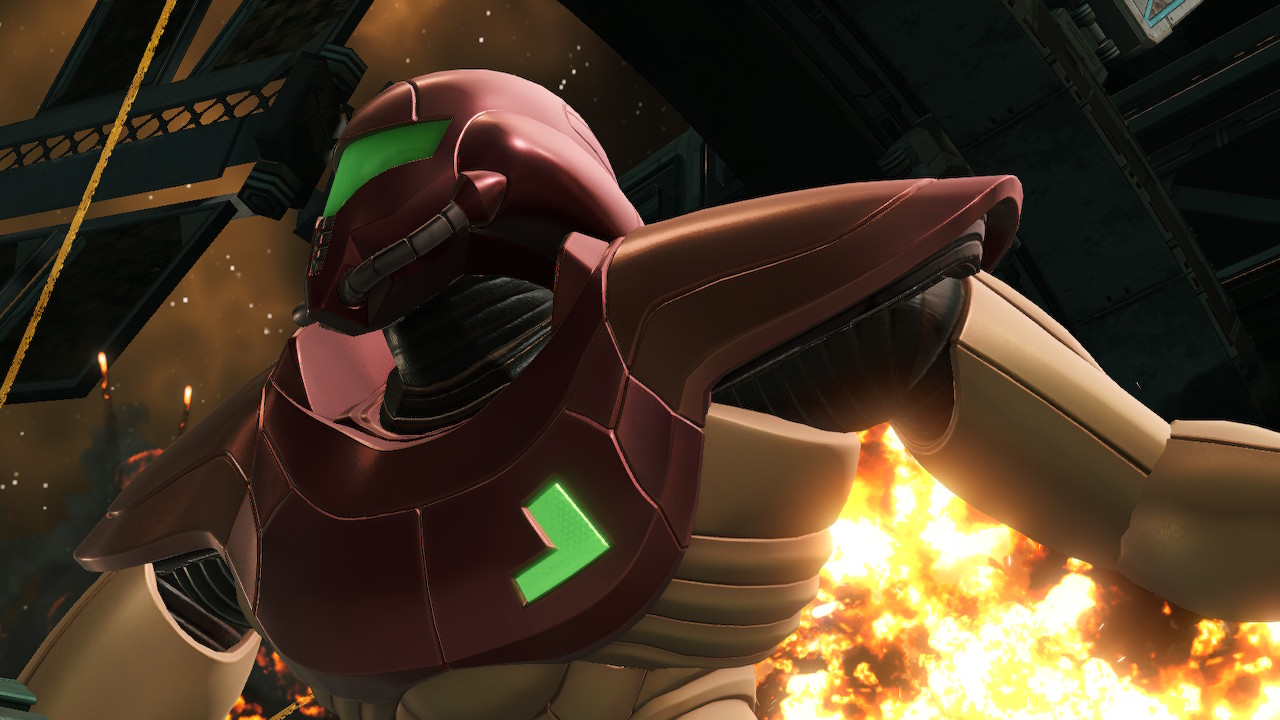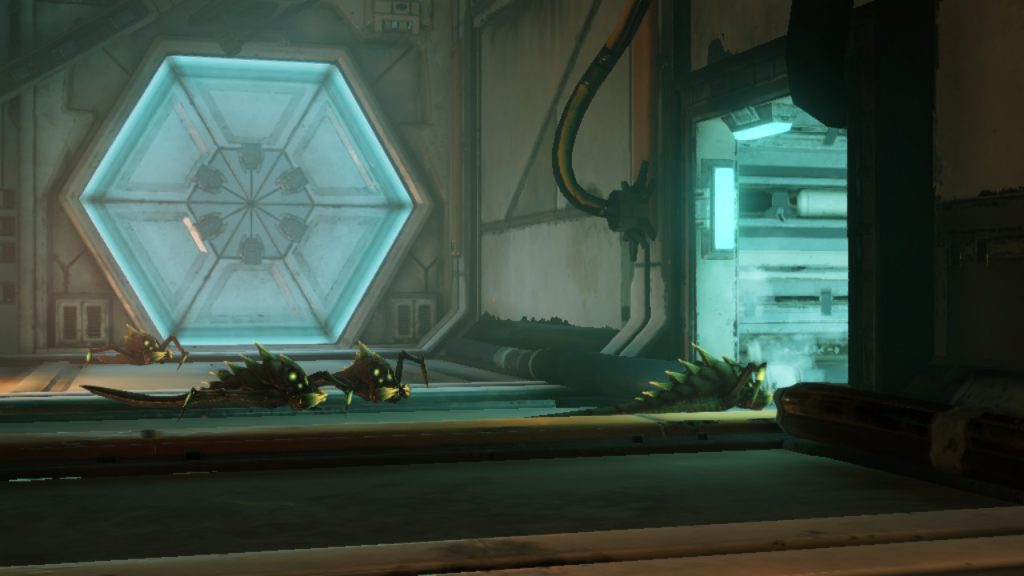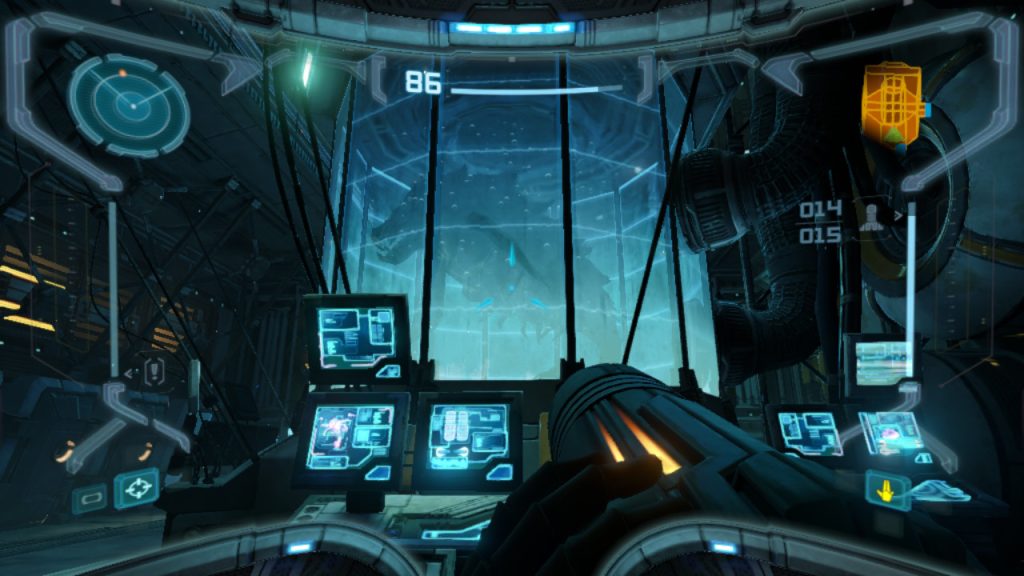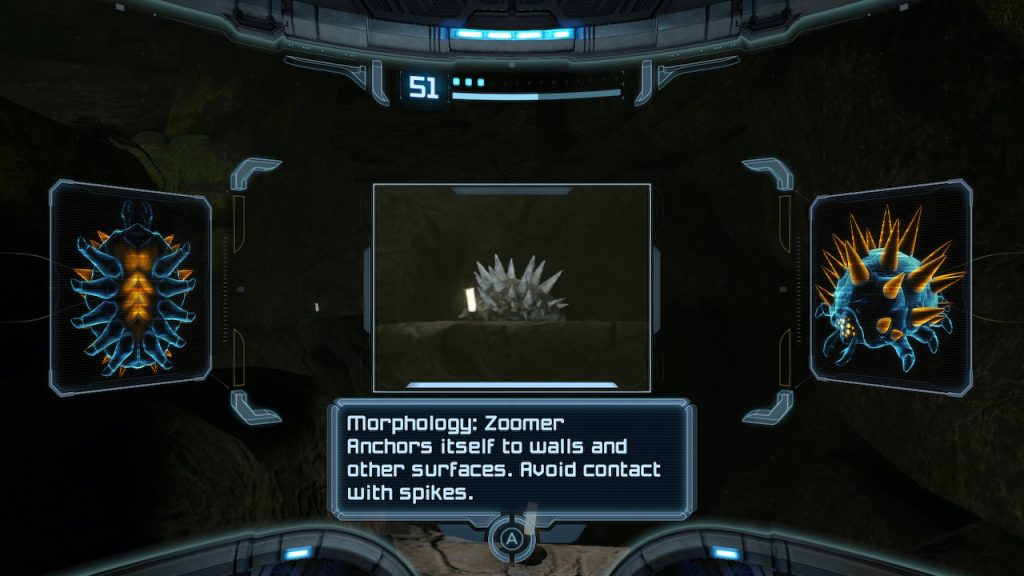
Metroid Prime tells the story of bounty hunter Samus Aran when she discovers a derelict pirate frigate full of dead and dying pirates. After encountering an old enemy, she pursues him beyond the frigate to Tallon IV, the planet that it was orbiting. Tallon IV is rapidly deteriorating, a once-lush planet decimated by an apocalyptic extraterrestrial impact. Samus must uncover the history of the previous inhabitants demise and overcome unforeseen threats.
When the original Metroid Prime was released, I was in elementary school. It was a dark, intense adventure game, with all the exploration, mystery, and understated terror that a 3D follow-up to Super Metroid deserved. At least, I presume that it must have been; I didn't play it at the time! In fact, I didn't play a single Metroid game until about 15 years later.
When I picked up Metroid Prime Remastered this year, I didn't have any nostalgia for the original. But I did have a keen interest in playing it, having developed an appreciation for the series in the past 8 years. Despite a couple of attempts to play through emulated versions of the original, this year's remaster was the push that I needed to finally stick with it.

Reboot Remake Remaster
IP reuse in today's video game industry is a well-established practice, integrated into the machinery that keeps certain publishers running. Metroid Prime Remastered is mostly true to it's "remaster" moniker: it leaves the vast majority of the gameplay and structure untouched, but heavily enhances the visuals and (to a subtler degree) the audio. Environments and creatures are more than merely upscaled; they are attentively reconstructed with additional detail and visual effects, aglow with dynamic lighting. The content and structure of the game are otherwise unmodified, aside from one crucial detail: the control scheme. The remaster brings a standard dual-stick FPS control scheme to Metroid Prime as one of its several options (alongside original GameCube controls, the 2009 Wii remake controls, and a hybrid between them).
I usually push myself to engage with older games as they are, rather than turning to mods and tweaks to make them more playable. When I first started this remaster, I was averse to the modern control scheme in the name of accuracy of experience. But I quickly reached a crossroads: I could truly play in step with the players of 2002's original... or I could focus on exploring the ruined world of Tallon IV with minimal friction.
Using the modern controls felt at first like a capitulation to my lazier sensibilities, but it was immediately clear how unnecessary Metroid Prime's obtuse controls are. The games asks for a lot of attention to detail and a fair amount of backtracking through still-treacherous spaces. Having the ability to easily look where I wanted and move how I needed to eliminated an enormous amount of the tedium of this aspect. It was a feature I badly needed in order to make the game approachable, and it speaks to the value of crafting a remaster like this.

Uncovering the Past
One of my greatest joys in video games is the exercise of building a deep understanding of a fictional space. It's why I'm drawn to the elaborate sandboxes of the modern Hitman games, the sprawling maps of Elden Ring and Breath of the Wild, and the intricate environments of Subnautica and Outer Wilds. You can look at my top 10 lists of the past five years and see a great number of games in which the experience of exploring their worlds, specifically, left an impression upon me. The Metroid series is adept at portraying such worlds, but it's one I arrived at late (I only dug in after I fell head over heels for Hollow Knight in 2017).
I've since delved into the past do a little bit of required reading. I played Super Metroid several years back and was not disappointed in the slightest. I played Metroid Fusion in the months preceding the release of Metroid Dread in 2021. I was excited to see Prime Remastered landing for me in the way that Super Metroid did; the ruins and wilds of Tallon IV are filled with danger and mystery, and I rarely tired of scouring the elaborate 3D map in search of details I'd missed or areas to revisit with new abilities.
Tallon IV is full of compelling spaces and shrouded in a sense of doom and mystery. The superposition of industrial research bases and ancient ruins, inscribed with echoes of alien history and prophecy, communicate a sense of extinction and exploitation. The myriad attacks from pirates and long-festering mutated creatures can be startling and unnerving. The game wields elements of horror in both its design and storytelling with efficacy and restraint, never quite undermining a sense of adventure and grim heroism.
I don't have too much to say about the actual story (told mostly through logbook entries) besides that it's often corny, but consistently moody, evocative, and nicely-paced. And, also, that the Metroid series' concept of what a "space pirate" is and does is buck wild. For me, it's primarily a great big interconnected world full of towering set pieces and bizarre xenobiology. I truly enjoyed my time bounding, rolling, and grappling through it; Tallon IV is rich with detail and worth exploring on its own merit, independent of Samus' story.

Conclusion
My few prior attempts to make progress into the original Metroid Prime fell short as I battled with the original control scheme, finding the exploration of the world mired by tedium and frustration. I had always blamed myself for being too attached to the conveniences of modern video game locomotion. And to a degree, that self-critique remains true; but it was a joy to have this problem eliminated from such an incredibly unique and atmospheric game. I'm hopeful to see its sequels given similar treatment. For now, I'll enjoy the bittersweet feeling of adding Metroid Prime 4 to my "feverishly-awaited games that may someday release" list.